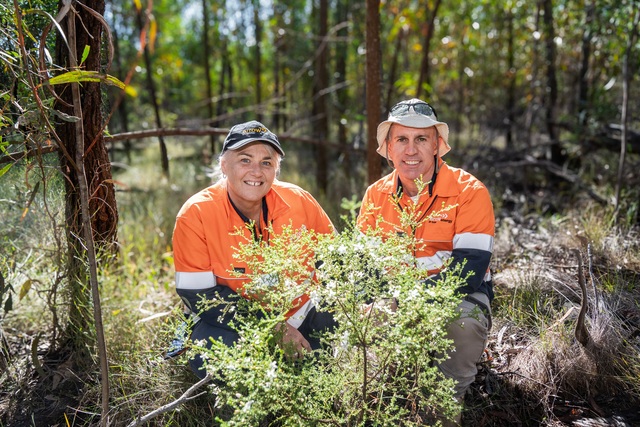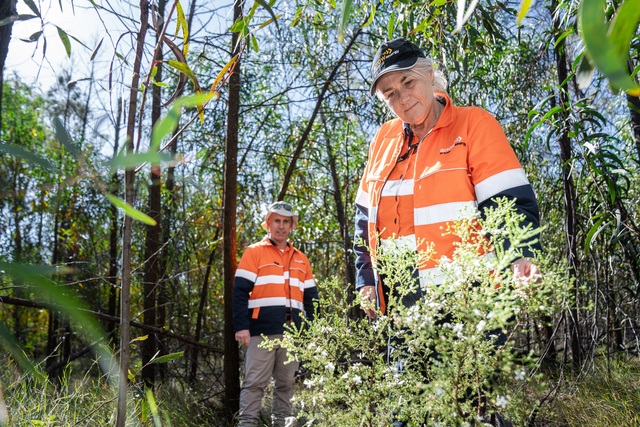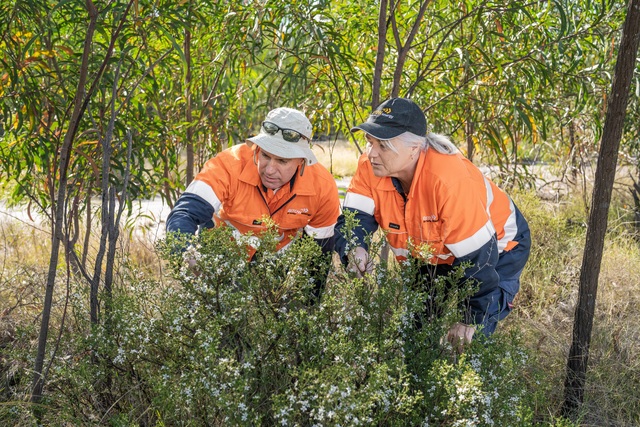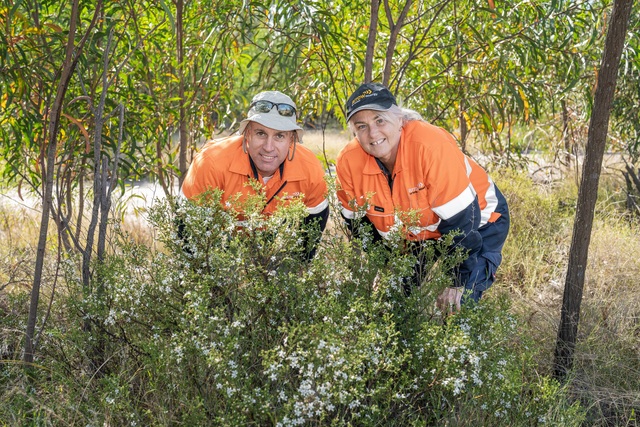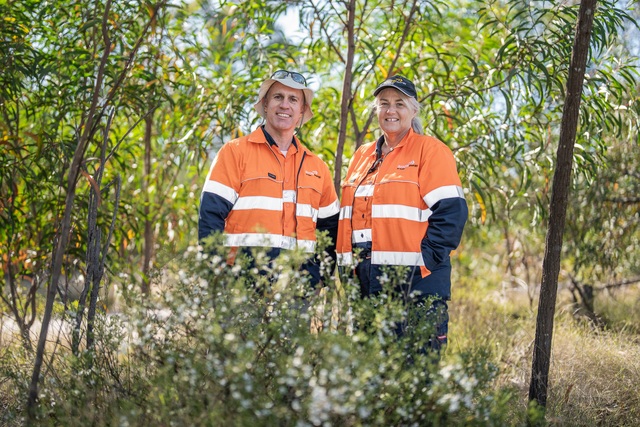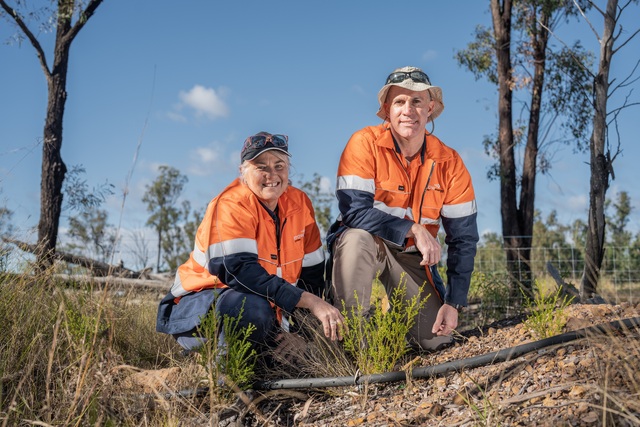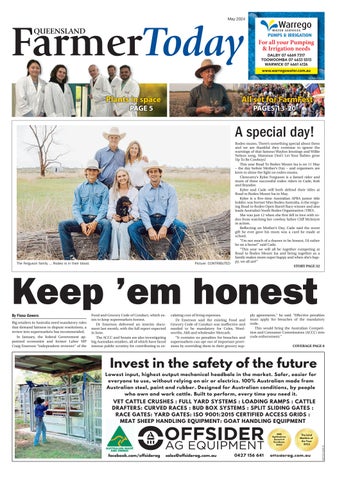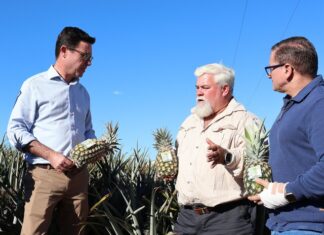Arrow Energy, a Dalby-based natural gas company, is using the latest cloning technology and horticultural techniques to protect the Kogan Waxflower, a threatened shrub found only in a small pocket of the Western Downs region.
The Kogan Waxflower – or Philotheca sporadica as it’s scientifically known – is native to the Kogan area, about 40 minutes’ drive north west of Dalby.
Preferring rocky, low-quality soil, the small yet hardy plant is classified as a “near threatened species” under the Queensland Nature Conservation Act 1992.
In 2020, Arrow obtained a permit to clear a small number of the plants, under the condition they were reintroduced to the area.
Arrow’s senior environment biodiversity offsets advisor Daniel Potter said to fulfill its commitments, the company embarked on a multi-year propagation trial to regrow the plant in the lab for reintroduction back into its natural environment.
“We started a propagation trial about two-and-a-half years ago,” Daniel said.
“One of the first things we did was engage an independent ecologist, who helped us collect seeds and cuttings from wild populations in the Kogan area.
“From there, they transported the cuttings to a nursery and, using a variety of techniques and technologies, we were able to successfully cultivate 500 plants.”
Daniel said the team explored various propagation techniques, with tissue culture proving to be the most effective, resulting in the creation of several different clones.
“So, you take a piece of another plant, grow a culture of that in a laboratory and grow more plants from that culture and they all have the same genetic sequence as the host plant,” he said.
The next step involved planting the seedlings in two different sites on Arrow’s farm in Theten.
Arrow’s Dalby-based environment advisor Julie Kil was responsible for monitoring and caring for the plants during the field trial stage.
“I would come out every month and monitor how the plants were progressing,” Julie said.
“It can be a bit of an emotional roller coaster. Some months they were looking great and then other months not so great. But it’s really rewarding to see what we’ve achieved here in the first year of the field trial.”
GAP Tree Change ecologist Grant Paterson was involved with the project from the start. He said that 12 months into the field trial, the project was already a success.
“At the six-month mark, we were a little disappointed as we’d lost quite a few plants in quick succession,” Grant said.
“But, at the 12-month mark, most of the plants are looking really, really good. We’re very happy with the results, with the plants flowering and setting seeds.”
Daniel said that the project was a wonderful example of Arrow’s commitment to sustainability and mitigating the environmental impacts of its activities.
“To take on board a propagation trial of a plant that’s not well known and not well researched and to invest time and effort into it, is quite a big undertaking,” he said.
Julie agreed.
“It shows that we’re prepared to go the extra mile to show we are a company that doesn’t just talk about sustainability but is committed to making a positive impact,” she said.

